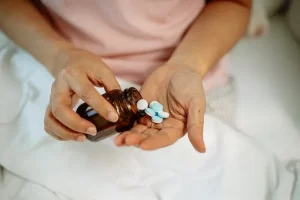Rehabilitation is a vital part of recovery for individuals suffering from addiction or other behavioral health issues. Treatment and rehabilitation programs provide individuals with the necessary resources and skills to get and stay sober. That is why it is important to complete the entire course of rehab treatment, rather than just going through the motions. Before fully recognizing the importance of completing a rehab program, it is important to understand the process of rehabilitation.
Treatment programs typically begin with a comprehensive assessment of an individual’s substance use, medical history, and other relevant assessment criteria.1 This assessment helps to inform a personalized treatment plan that meets the needs of the individual in the best way possible. The treatment plan serves as the foundation for the type of therapy and treatment services, such as psychotherapy, group therapy, and medication management, that individuals in treatment will receive as part of their recovery plan.
Whether a person is in an inpatient or outpatient rehab setting, following through with the treatment plan is essential for the individual’s long-term recovery success. Individuals often walk away from the treatment process before they can truly experience all the benefits of completing a full rehabilitation course.

So, what is so important about finishing a full rehab program?
The first and possibly most important benefit of completing a rehab program is the comprehensive understanding of addiction. During treatment programs, individuals can explore the roots of their addiction, learn about the disease model of addiction, and understand various treatment models for addiction. Through this exploration, individuals can gain an understanding of how addiction works and how to prevent relapse in the future.
The second important benefit of completing a rehab program is developing the skills needed for long-term success and sobriety. During treatment, individuals learn various ways to cope with triggers, handle stress, recognize early signs of relapse, develop healthy relationships, create a recovery plan, and build on recovery from day one. As a result, individuals can develop the tools and skills they need to maintain their sobriety over the long term and leave the treatment program with a comprehensive aftercare plan.
In addition to the physical, mental, and behavioral benefits of rehabilitation, completing a full treatment program can be beneficial for individuals’ emotional and spiritual well-being. Treatment approaches often involve an holistic approach to recovery and providing individuals with the opportunity to explore issues such as grief, trauma, shame, and fear. Recognizing these issues, with guidance from an experienced professional, can be a vital part of individuals healing that can ultimately set them up for long-term recovery.
Finally, completing a rehabilitation program will give individuals access to the vital aftercare services that can help keep them on track in sobriety. For example, many individuals choose to participate in follow-up services such as outpatient counseling, support groups, or other recovery coaching programs. These types of services are often essential for continuing progress in recovery and rebuilding lives in a healthy, fulfilling way.
In conclusion, completing a rehab program is an essential part of recovery for individuals with any type of substance use disorder or other behavioral health issues. Rehabilitation programs provide individuals with the comprehensive assessment and treatment they need to begin recovery, as well as the skills to maintain long-term sobriety. Additionally, individuals can benefit from the emotional and spiritual aspects of programs, as well as continued aftercare services. Individuals who complete a rehab program are more likely to experience greater success in recovery over the long-term. Therefore, it is important to fully understand the importance of finishing a rehabilitation program in order to achieve and maintain sobriety.
